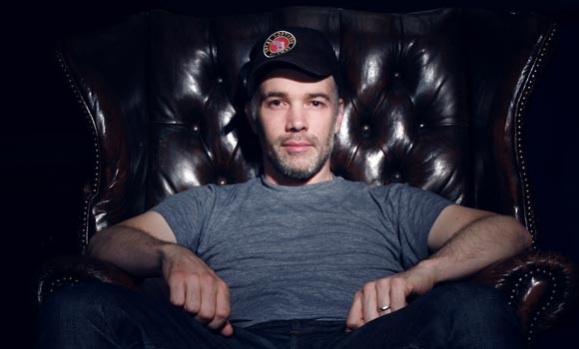Rich Terfry is probably CKDU 88.1 FM‚Äôs most famous alumni. As the host of CBC Radio Two‚Äôs national Drive program and as internationally recognized hip hip artist Buck 65, he‚Äôs gone a long way from the ∫⁄¡œ≥‘πœÕ¯radio station‚Äôs broadcast booth.
He’s pretty stoked about returning, though.
“Boy oh boy, I can tell you that I have a thousand and one bonkers stories from my days down there,” he says excitedly over the phone from Toronto. “I mean I never had a gun pulled on me at the CBC, but I did at CKDU!”
NCRC events in Halifax, June 6 - 10
Mr. Terfry will tell as many stories as he can about life on and off the airwaves Friday, June 10, when he appears onstage in conversation as part of the National Campus and Community Radio Conference (NCRC) hosted by CKDU this week.
The conference starts Monday, June 6 and runs all week long. More than 100 community-campus delegates from stations across Canada will be on ∫⁄¡œ≥‘πœÕ¯campus to talk radio.
Many events, from music to movies and radio discussions are open to the public. Check out a complete listing of NCRC events, including details on Rich Terfry’s talk, on .
Bassment community
CKDU gave Rich Terfry a solid musical education and helped him develop his voice both as a broadcaster and an artist.
He spent 12 years volunteering at the station — he’s listened to every record at the station at least once — and his career all came together through trial and error and a lot of late nights.
He modeled his first show The Bassment after hip hop radio he heard on trips to New York City. Listeners called him with shoutouts or requests and local artists would come in to freestyle live on-air. The show became a nexus for Halifax’s hip hop community and was known nationally before podcasting or Internet streaming.
“I remember struggling to find a voice for quite a long time and trying to figure out how I was supposed to sound,” he says. He drew on the New York City DJs who sermonized, vented and promoted local artists and causes through a thick layer of bravado.
“The amazing thing is, looking back, is the insane amount of work I put into that show.”
His girlfriend taped all his shows and he listened to them religiously after the show. The next day, he’d begin planning the next one. He mapped shows out in detail on paper and he’d arrive at the station three hours early to do two dry runs before going on air.
Jesus Murphy and Buck 65
On The Treatment, his second show, Mr. Terfry‚Äôs on-air persona DJ Jesus Murphy¬Ý gruffly performed stories live to music in studio. They were an early incarnation of his alter ego, Buck 65. He was already rapping as Stinkin‚Äô Rich, but now that mix of storytelling and music began to gel. Radio had a huge influence on his art.
“One was carrying onto the other, no two ways about it,” he says. “Almost right away, one — the way I was putting together an hour of radio — was affecting the other — a set to perform onstage — and to this day, those two really strongly inform each other because it’s the same thing. The audience for the both is very similar.”
Finding new audiences
Thinking about audiences takes up a lot of his time at the CBC now. There’s a frustration in his voice when he compares the freedom of his early days volunteering on community radio to working for a public broadcaster.
“Now I’m at the CBC, we have meetings all the time trying to figure out how do we get voices on the air and how do we get the community involved. It just seemed so easy and natural back then. It wasn’t forced. We weren’t trying to be too clever about it. People just wanted to hear their voice on the radio and that was one of the first things I learned.”
Now, consultants get called in to advise on questions of community when at CKDU, it felt like he had a direct connection to his community.
“It’s amazing how often — even though it’s such a completely different can of worms — I find myself drawing on my time at CKDU and thinking, ‘God, I had this figured out on my own in a way that really worked’ and sometimes it feels like it’s killing us at the CBC to figure out how to do the same thing.”
The future of radio
Mr. Terfry doesn’t worry about the future of radio. There’s something imaginative and intimate about the medium that connects with people and he believes radio will survive in some form or another because of that personal connection.
“People like to have that voice, that companion with them if they are discovering music, or hearing music that is really familiar to them,” he says. “To be able to have that and to feel like you are part of something, it comes back to that community thing.”
He draws on his childhood as an example, As a kid, confronted with the choice of watching a baseball game on TV or listening to it on the radio, he usually chose to listen to it on the radio.
“To me it was so much better because the players were all 10 feet tall. They were all like superheroes out there. The broadcasters were like these poets and it was so much better in your imagination.”

